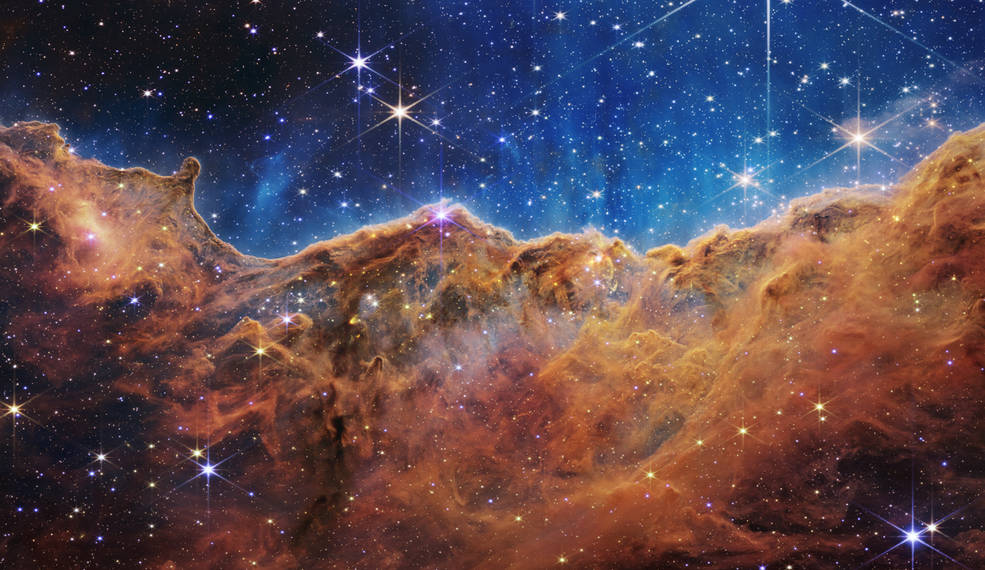The telescope’s first full-color images and spectroscopic data are being released during a televised broadcast beginning at 10:30 a.m. EDT (14:30 UTC) on Tuesday, July 12, from NASA’s Goddard Space Flight Center in Greenbelt, Maryland. The images will be published to this page as they are revealed during the broadcast. These listed targets below represent the first wave of full-color scientific images and spectra the observatory has gathered, and the official beginning of Webb’s general science operations. They were selected by an international committee of representatives from NASA, ESA, CSA, and the Space Telescope Science Institute.
Released one by one, the first images from the world’s largest and most powerful space telescope will demonstrate Webb at its full power, ready to begin its mission to unfold the infrared universe. The first images will be added to this page as they are released.
1 – Carina Nebula
2 – Stephan’s Quintet
3 – Southern Ring Nebula
4 – WASP-96 b
5. SMACS 0723
NASA’s James Webb Space Telescope has produced the deepest and sharpest infrared image of the distant universe to date. Known as Webb’s First Deep Field, this image of galaxy cluster SMACS 0723 is overflowing with detail.
Thousands of galaxies – including the faintest objects ever observed in the infrared – have appeared in Webb’s view for the first time. This slice of the vast universe covers a patch of sky approximately the size of a grain of sand held at arm’s length by someone on the ground.
President Joe Biden unveiled this image during a White House event Monday, July 11.
Source: nasa.gov
